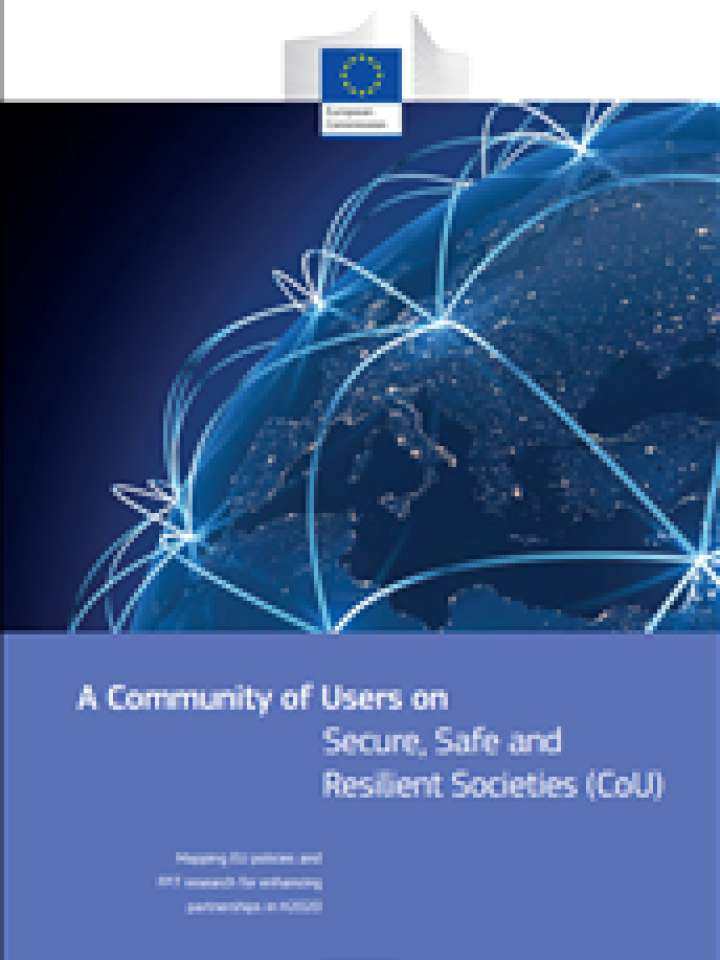A community of users on secure, safe and resilient societies (CoU)
This working paper presents the reasoning for the development of a Community of Users on Secure, Safe and Resilient Societies and the results of the mapping of policies and research in this area. To address the management of disaster risks and crises of different kinds, there is a strong need to establish a mechanism enabling better information exchanges. The overall EU security policy framework covers many different sectors, which implies the need for coordination among various communities.
The complexity of policies, the high number of research projects, the disconnect between research and implementation, the challenges involved in bringing innovative tools and solutions to the market, and the lack of "interfacing" mechanisms make it difficult to communicate and share knowledge effectively and efficiently.
To improve this situation, the European Commission is supporting the development of a “Community of Users” in the EU to reduce the current fragmentation in security research and facilitate information exchanges among and between policy-makers, research, industry (including SMEs), practitioners (first responders, civil protection units etc.), and the general public.
The Users include those involved in fields responsible for security, safety and resilience for society. They are separated into five main categories representing policy-makers, scientists, industry (including SMEs), training and operational units, civil society.
The Community of Users has five key objectives:
- Ensuring that research programming (particularly H2020) takes account of practitioners' needs, thereby promoting research results that are relevant to them;
- Identifying the most promising tools and methods (including those developed in FP7 and H2020 projects) that have the potential to be taken up by practitioners;
- Support the competitiveness of EU industry by enhancing the market for research results;
- Ensuring that practitioners' expertise is available to policy makers, thereby facilitating the policy-making process;
- Facilitating the implementation of policy.
Explore further
